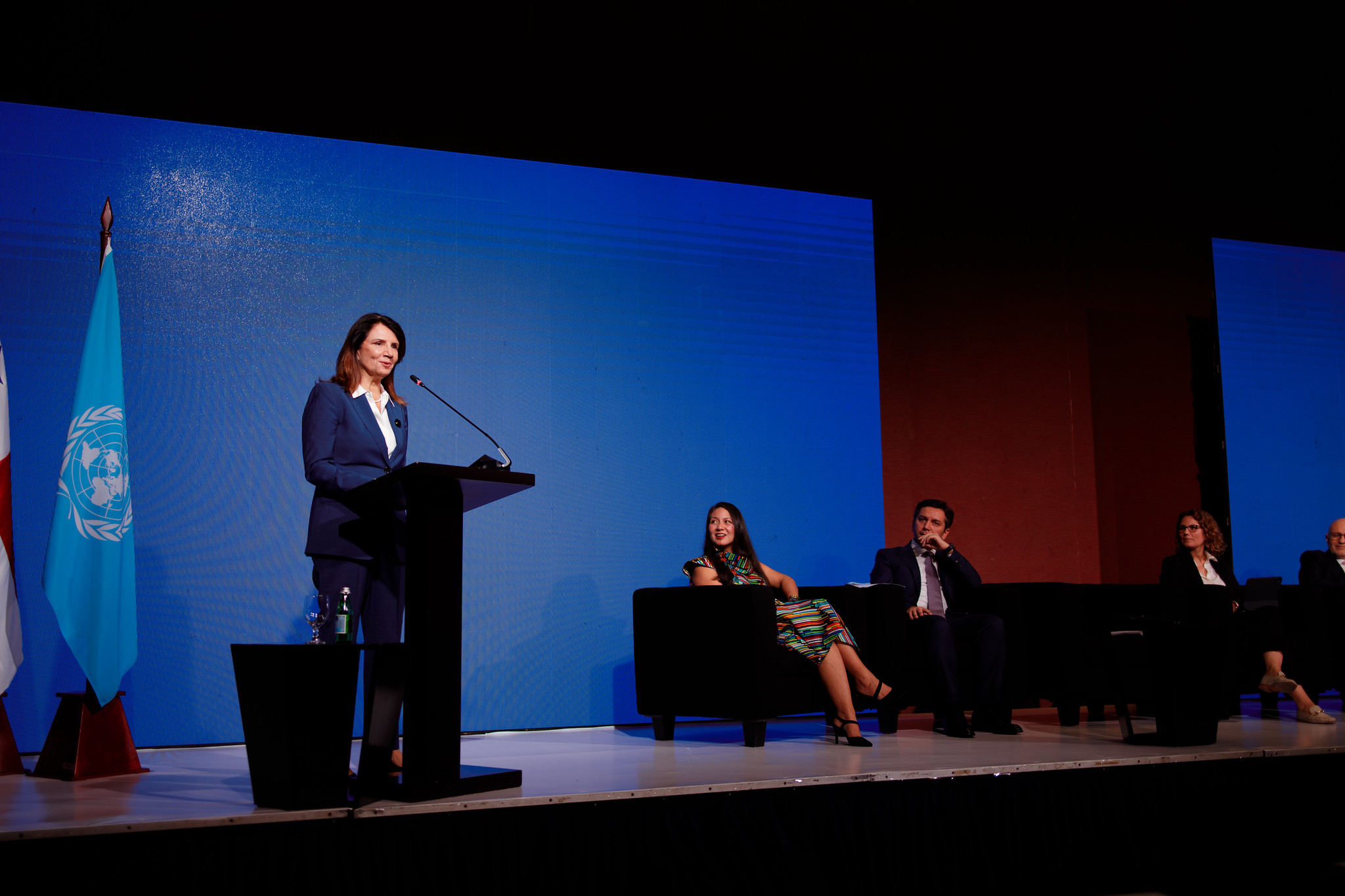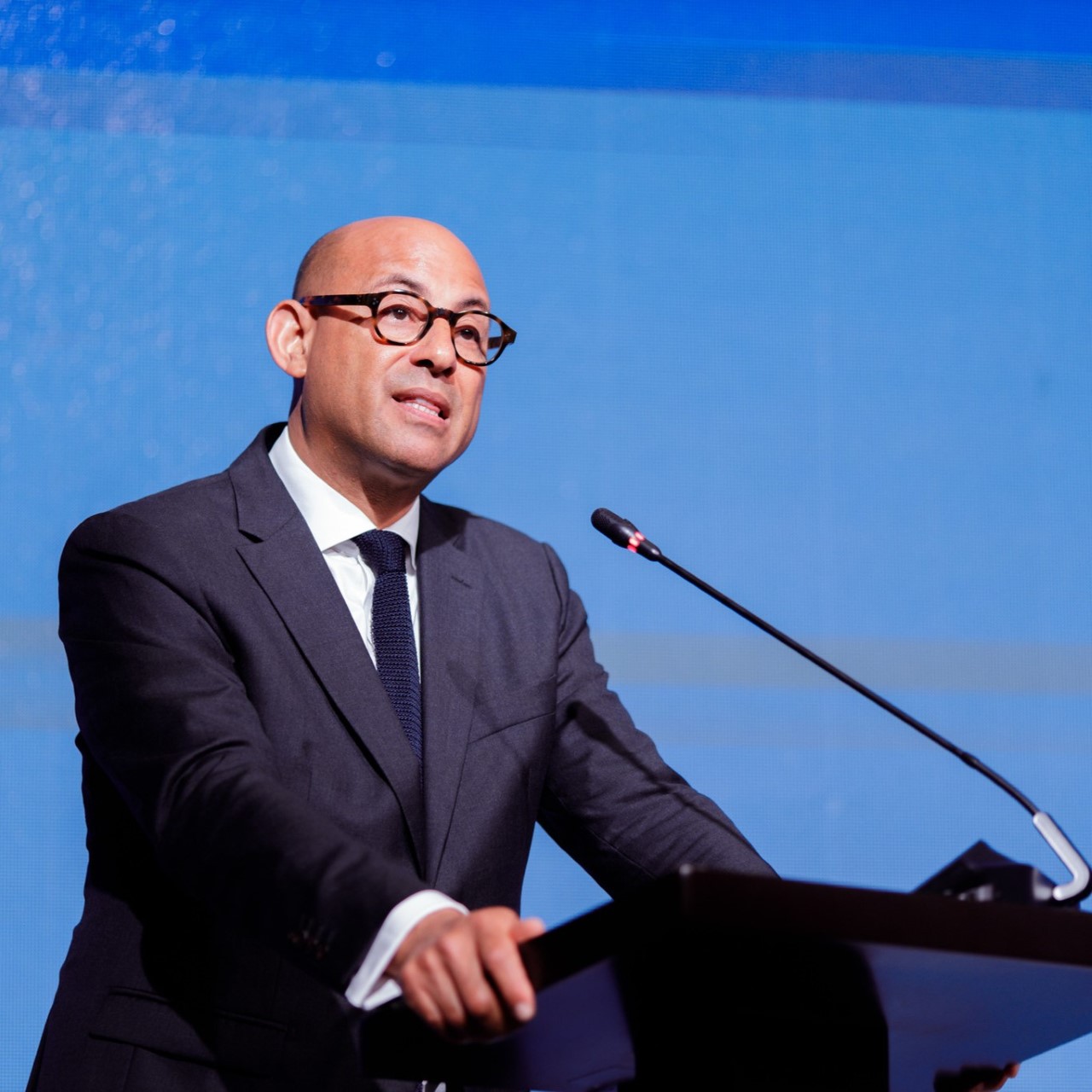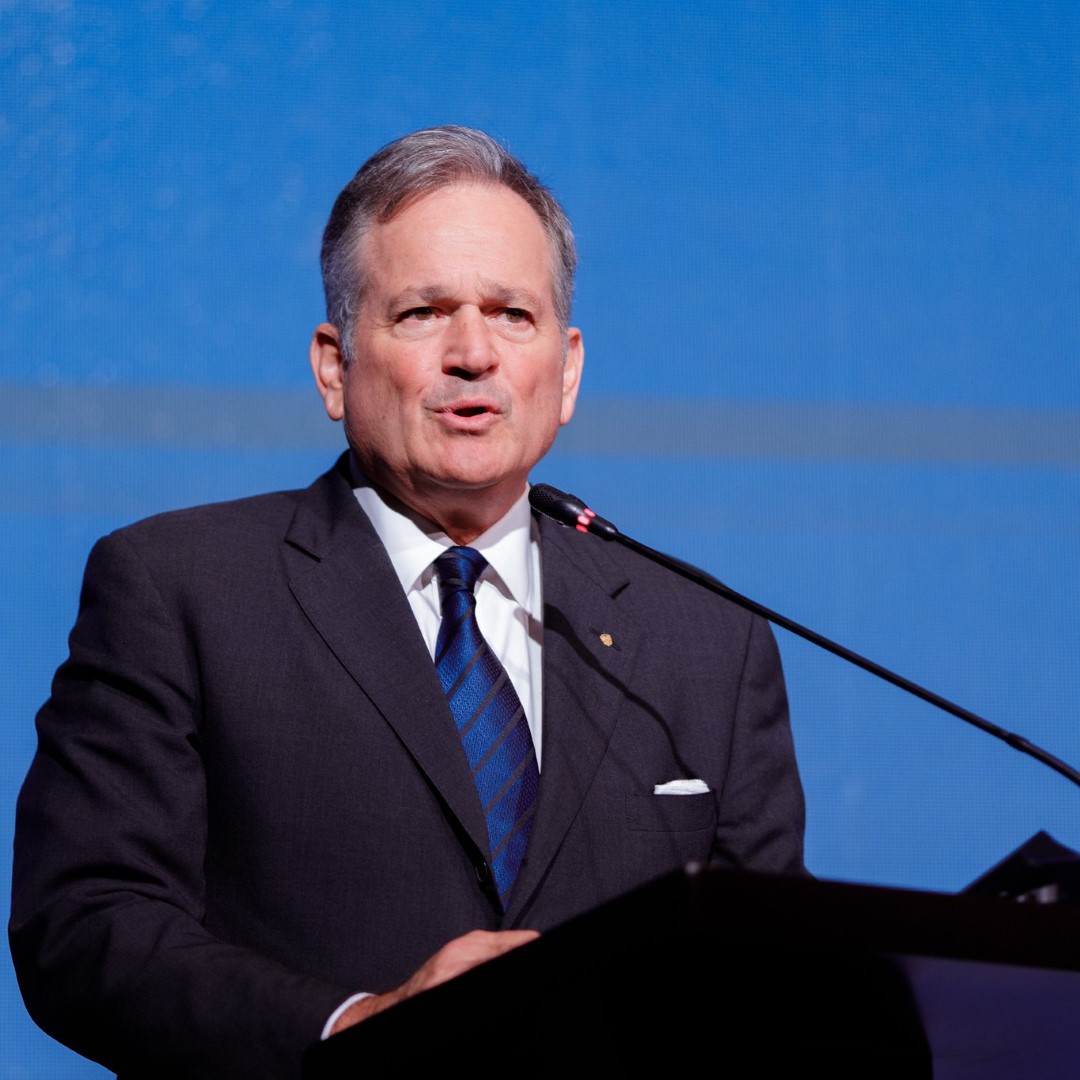COP30 in Panama: Implementation Forum Demands Urgent Action on Climate Crisis
The discussions stressed the importance of tangible and ambitious measures regarding just financing and the energy transition
COP30 Communications Team
From May 19–23, the COP30 Presidency organized the Implementation Forum during Panama Climate Week, which demanded immediate, tangible actions to address the climate crisis. Governments, the United Nations, and civil society demanded tangible results, issuing strong statements that denounced the inadequate progress of current efforts against the backdrop of a planetary emergency.
The COP30 Presidency co-hosted the Implementation Forum, which gathered governments, financial institutions, the private sector, civil society, and Indigenous and traditional communities. This forum aimed to promote tangible actions on global agendas, including climate finance, technology transfer, and carbon market development.

Ana Toni, CEO of COP30, emphasized Latin America's transformative role in the global climate agenda and stressed the Implementation Forum's importance as a model for action. "Our region is an inspiration for what is possible. We protect our forests and have predominantly renewable energy systems. Now, we need to scale up these solutions together," she said.

Toni outlined three priorities for COP30: accelerating the implementation of tangible measures, strengthening multilateral cooperation without leaving anyone behind, ensuring that the climate agenda reflects the urgency of the crisis, and focusing on ambitious, inclusive, collective solutions. "We know COPs are not magic solutions. But we now have the chance to start a new decade with a new level of ambition that reflects the urgency of our situation. We must act, even when risks are involved, and not let fear paralyze us," she said.
"This Climate Week marks a new chapter in how we gather and deliver results together. We are overcoming the historical disconnect between discussions and practical climate action," said Stiell.
Stiell advocated for a new approach to addressing the climate crisis—one that drives more investment and strengthens the UN and countries' ability to turn dialogue into measurable outcomes. "There is no substitute for tangible action. We need to eliminate redundancies, maximize every dollar spent, and ensure that every conversation brings us closer to the 1.5°C goal. The UN is transforming to deliver more efficiency, impact, and inclusion,” he emphasized.
Governments Must Commit

Juan Carlos Navarro, Panama’s Minister of the Environment, gave a forceful speech, pointing to extreme climate impacts such as heatwaves, wildfires, droughts, and floods, and criticized the gap between climate discussions and real action. “Time is up. We are destroying the planet. I recognize the efforts and sincerely thank all those fighting climate change, but the progress is negligible compared to the scale of the challenge. We can no longer accept excuses — every country and every government must be accountable,” he said.
Navarro highlighted the paradox his country faces. Despite generating 70% of its energy from clean, renewable sources and maintaining strong carbon emission records, Panama suffers severe consequences of the climate crisis. In 2023, extreme drought caused a drop in river inflows to the Panama Canal, disrupting ship traffic and resulting in losses of over two billion USD.
In 2024, catastrophic floods destroyed infrastructure and claimed lives. "Life is unfair. A country that protects the climate pays the price for a crisis it didn't create," Navarro concluded, demanding urgent, collective action.
Integrating Science and Traditional Knowledge

Colombia’s Minister of Environment, Lena Yanina Estrada, stressed the importance of listening to both scientific knowledge and ancestral wisdom and issued a powerful call for more inclusive and effective climate action. “Climate change knows no borders but demands shared responsibility. We need a new ethic of development that integrates human life with territory and includes the most vulnerable. Our climate response must integrate the knowledge of Indigenous peoples and Afro-descendant communities,” she stated.
According to Estrada, the transition to a fossil-fuel-free economy is not optional — it is essential and requires collective effort. She defended the Implementation Forum as a crucial space to overcome financial and technological barriers and accelerate a just, decentralized energy transition. “No isolated voice will make a difference. Only united can we build a just and resilient future. It’s not enough to write technical plans in offices — solutions must be built with local communities, who know their territories, risks, and opportunities,” she added.
English Version: Trad Bárbara Menezes
Proofreading by Enrique Villamil
